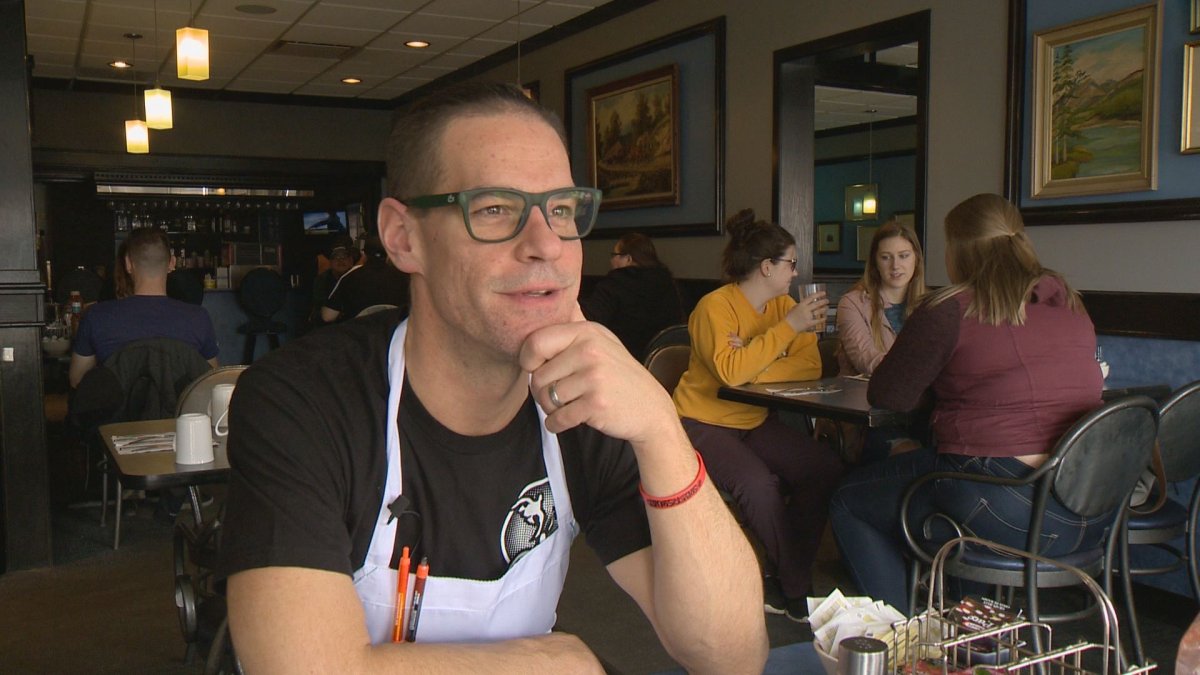Saskatchewan has had a PST on restaurant meals for just over a year. The change, which was unveiled in the 2017-18 budget, was accompanied by an increased PST of six per cent.

Western Canada vice president for Restaurants Canada, Mark von Schellwitz says their Saskatchewan membership base is feeling the financial pinch.
“Our sales were down 4.5 per cent. We lost 1,700 jobs last year, so the industry’s really been struggling as a result of those changes,” von Schellwitz said.
“In the rest of the country restaurant industry sales went up by 4.1 per cent. Saskatchewan, by far the worst performance in the country, a decline of 4.5 per cent.”
Back in September, Global News checked in with Beer Bros. Gastropub to see how PST was affecting their business.
At the time, co-owner Darren Carter said revenue was down five per cent and four jobs were lost to attrition. Those employees left due to hours being reduced, and the jobs were not filled.
READ MORE: Restaurants, small businesses feeling the squeeze of Sask. tax increases
On April 12, he said the downtown Regina restaurant was still in the same situation.
- Posters promoting ‘Steal From Loblaws Day’ are circulating. How did we get here?
- Video shows Ontario police sharing Trudeau’s location with protester, investigation launched
- Canadian food banks are on the brink: ‘This is not a sustainable situation’
- Solar eclipse eye damage: More than 160 cases reported in Ontario, Quebec
“In terms of people changing their behaviours, there are always options to spend money in the economy. Do you spend money in a restaurant or do you spend money in a grocery store? A grocery store doesn’t have the same burden that we do in paying for those consumption taxes,” Carter said.
Carter, along with von Schellwitz, were pleased to see no increase to PST in the 2018-19 provincial budget. However, the behaviour change brought on by last year’s changes leaves a lingering concern for Beer Bros.
“After several years as this tax sets in, people get comfortable and your behavior is set. So it’s really hard to get people to change from that,” Carter said.
READ MORE: Saskatchewan projecting $365M deficit in 2018-19 budget
Bother Carter and von Schellwitz said food services can be a volatile industry, and when there is a slower economy and/or less disposable income meals out, those are often among the first things reduced in a personal budget.
Nicky’s Café co-owner Kevin Foley says he’s also seen a bit of a slowdown over the last year. He believes it’s a combination of a slower economy and the PST.
“For us we’re taking a wait and see type of attitude. As people learn to adjust with their budgets and learn to scale back, business typically tends to come back,” he said.
“The initial shock and adjustments have been made, and if you came back to me in another year I’d probably be able to give you a better indication of what that six per cent has done. For now we’re still in the adjustment period.”
While business is going well at Nicky’s, Foley counts himself as lucky that no one has had to be laid off as there is worry among his industry friends.
Foley has still noticed spending changes. Fewer appetizers, cocktails and desserts are being ordered at the café. He says it all comes down to less disposable income.
“It always seems like a little bit extra is being taken away. People work hard for their money and a lot of the conversations in the café seem to reflect those kinds of decisions that government makes,” he said.





Comments